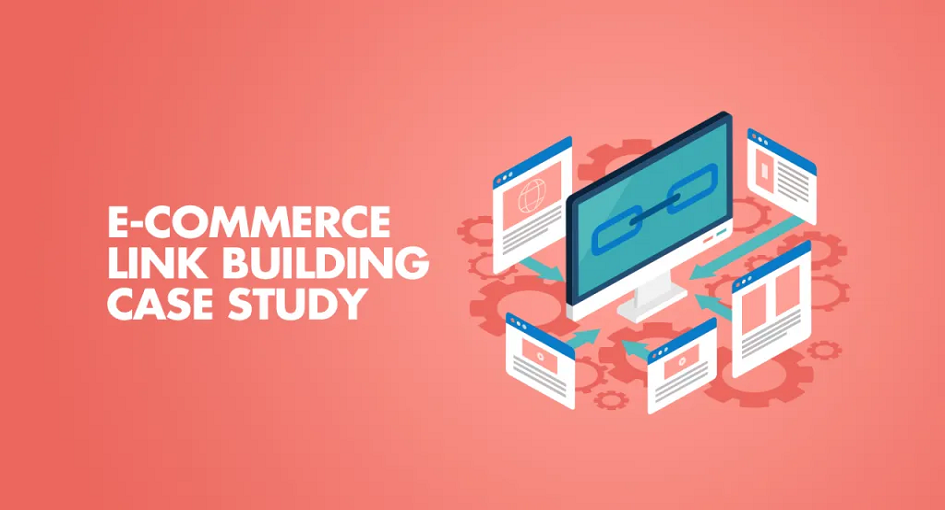
In the fiercely competitive world of e-commerce, gaining visibility in search engine rankings is essential for success. One effective way to improve your e-commerce website’s search engine optimization (SEO) is through link building. By acquiring high-quality backlinks, you not only boost your website’s authority but also drive more organic traffic and increase your chances of ranking higher in search results. This comprehensive guide explores easy and actionable strategies for e-commerce link building that can help you stay ahead of the competition.
Start your link-building journey by reaching out to your existing network. Collaborate with suppliers, manufacturers, partners, and even satisfied customers who have blogs or websites. Ask them to link to your e-commerce site in relevant contexts. These relationships often yield quick and high-quality backlinks.
Develop valuable, informative, and shareable content that resonates with your target audience. This could include product guides, how-to articles, or in-depth reviews. Share this content on your blog and social media channels to encourage natural backlinks from bloggers, influencers, and industry publications.
Encourage your customers to create and share content related to your products. User-generated content, such as reviews, testimonials, and photos of customers using your products, not only enhances trust but also attracts organic backlinks when shared on social media or forums.
Identify reputable blogs, websites, or industry publications that accept guest posts. Craft well-researched and informative articles related to your niche or products. In your author bio, include a link back to your e-commerce link building. Guest blogging can help you tap into new audiences and earn authoritative backlinks.
List your e-commerce store on relevant online directories and local business listings. Ensure that your business information is accurate and consistent across these platforms. These listings not only improve your local SEO but also provide valuable backlinks.
Analyze your competitors’ backlink profiles to discover link-building opportunities. Identify websites that link to your competitors and reach out to them with a compelling pitch on why they should also link to your site. Tools like Ahrefs and SEMrush can assist in this research.
Search for broken links on authoritative websites in your industry. Reach out to the website owners or administrators and offer to replace the broken link with a relevant link to your e-commerce link building site. This approach can be mutually beneficial and lead to valuable backlinks.
Actively engage with your audience on social media platforms. Share your products, blog posts, and promotions. When your content resonates with your followers, they may share it on their own blogs or social profiles, creating organic backlinks.
Conduct targeted email outreach to influencers, bloggers, and industry experts. Offer to collaborate on content or provide them with exclusive discounts or products in exchange for a mention or backlink on their websites.
Continuously monitor your backlink profile and track the performance of your link-building efforts. Disavow toxic or spammy backlinks, and regularly update and refresh your content to keep it relevant and appealing to both users and search engines.
Influencer marketing is a powerful way to gain high-quality backlinks. Identify influencers in your niche who can promote your products or create content around them. Many influencers have their blogs or websites where they can feature your products with backlinks to your e-commerce site.
Consider sponsoring events, conferences, or local organizations related to your industry. These sponsorships often come with opportunities for backlinks on event websites or partner pages. Additionally, forming partnerships with complementary businesses can lead to natural backlink opportunities.
Visual content such as infographics, videos, and interactive tools can attract backlinks from websites looking to enhance their content. Create visually appealing and informative content that others in your industry would want to share and link to.
If you sell your products on e-commerce platforms or marketplaces like Amazon, eBay, or Etsy, make sure your profiles are optimized with backlinks to your main e-commerce website. This not only helps with SEO but also directs potential customers to your primary store.
Seek opportunities to be a guest on industry-related podcasts. Podcast hosts often include show notes with links to their guests’ websites. This can be a unique way to earn authoritative backlinks and reach a different audience.
Republish your top-performing blog posts or articles on reputable content syndication platforms. These platforms can expose your content to a wider audience and may result in backlinks when other websites republish your content with attribution.
Sign up for services like HARO, where reporters and journalists seek expert opinions and insights. When you contribute to relevant inquiries, you may be featured in articles or publications with backlinks to your site.
In conclusion, e-commerce link building is an ongoing process that requires dedication and a strategic approach. By implementing these easy and actionable strategies, you can strengthen your website’s authority, improve its search engine rankings, and drive more organic traffic. Remember that quality always trumps quantity in link building, so focus on acquiring high-quality, relevant backlinks to ensure long-term success in the competitive e-commerce landscape.